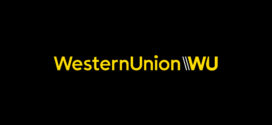By Cihat Takunyaci, Managing Director, Country Manager for Turkey, BNY Mellon and Margaret Guevara, BNY Mellon Treasury Services’ Head of Sales and Relationship Management for Mexico and Central America

Efforts to increase trade between Turkey and Mexico are gathering momentum – a trend fuelled by the global financial crisis. Indeed, the particularly detrimental effect of the crisis on their more “traditional” key trading partners (i.e. the US and Europe) expedited the need for both countries to diversify their foreign trade. Since 2009, for example, Turkey has followed the “Commercial Development Strategy towards the Americas”, which identified countries including Mexico, Brazil and Chile as key trading partners. Furthermore, to help build closer ties and facilitate trade and investment between Turkey and Latin America and the Caribbean (LAC), Turkey became an observer member of the Pacific Alliance, which comprises of Chile, Colombia, Mexico and Peru, in 2012.
In recognition of the importance of Turkey’s membership, the Alliance subsequently established its first joint trade promotion office in İstanbul in 2013, with representatives of the Alliance countries organizing joint events to promote themselves in Turkey. Turkey’s unrivalled position as the link between Europe and Asia brings significant value to the Alliance, and it could also help countries such as Mexico strengthen its market presence across Europe, the Middle East and Africa[1]. Concurrently, Turkey can leverage the strong ties the Alliance holds with Asia to bolster its presence there.

Trade between Turkey and Mexico is increasing, soaring 15-fold between 1999 and 2014 to reach US$967 million[2]. And this momentum for growth shows no sign of abating, with Turkey’s exports to Mexico more than doubling between 2011 and 2015, according to the Turkish Statistical Institute. Mexico’s exports to Turkey primarily consist of motor vehicles, plastic goods, wheat, fresh fruit and vegetables, and chemical and pharmaceutical products; while imports are largely motor vehicle spare parts, machinery, precious metals/jewelry, and iron and steel.
Driving opportunities
Despite such impressive levels of growth, Turkey’s trade with the whole of the LAC region still only accounts for approximately two per cent of its total commerce[3] – so there is huge potential for expansion. Notable areas for growth include machinery, construction, textile, tourism and renewal energy. Furthermore, Turkish investors regard Mexico as particularly desirable due to the economic opportunities that may be possible via the North American Free Trade Agreement (NAFTA) between Mexico, the US and Canada. Certainly, extensive economic opportunities exist to extend trade and investment, and Mexico is becoming increasingly aware of the possibilities that a stronger Mexico-Turkey relationship could offer.
Currently, a free trade agreement (FTA) between Turkey and Mexico has not yet been agreed, meaning importers are exposed to higher charges, thereby impacting both countries’ export potential. But discussions are well underway to establish an FTA, with a fifth round of negotiations held in July 2015. Plans to consolidate the agreement are gaining traction and both nations hope that, when in place, it will strengthen trade ties, helping to increase annual bilateral trade to US$5 billion by 2023[4].
Facilitating trade
While relations are undoubtedly improving, if the full scope of opportunities that each country has to offer are to be grasped, businesses in Turkey and Mexico must be confident in the trade processing methods that are available in order to ensure they can trade effectively and securely.
In the modern digital era, clients are increasingly coming to expect speed, transparency and efficiency in their trade processing, which is driving the trend for open account trade and resulting in paper-based letters of credit (LCs) often being viewed as somewhat cumbersome.
Yet, when establishing new trading partnerships with unfamiliar counterparties across far-flung distances, the element of risk is significantly increased, meaning that security becomes paramount – so open account trade will not suffice. Therefore, if Turkey-Mexico trade is to flourish, banks must be able to provide solutions that offer a combination of the security properties of the LC and the ease, efficiency and cost-effectiveness of open account trade.
One such solution is electronic data-matching, which receives and verifies original LC documentation online. This automated technology allows the inefficiency and risks associated with manual processing to be consigned to the past, while also providing security, enhanced processing speed, improved visibility and data-reporting capabilities.
Partnering with global trade processing banks is a way in which local banks can offer such trade processing solutions without the need for significant investment into technological product development. These non-compete alliances fuse the experience and capabilities of local and global banks, providing the support that businesses need to be able to approach new Turkey-Mexico opportunities with confidence and success.
Certainly, Turkish banks are already extending their reach through partnerships with banks in a number of South American countries, and it is hoped that the establishment of similar relationships will begin to gain traction in Mexico. Local banks in Turkey and Mexico could also drive progress and extend their reach by engaging and forming partnerships with other banks in these respective countries, as well as leveraging opportunities with the help of international correspondent banks such as BNY Mellon, whose connectivity in these countries is both deep-rooted and strong.
The views expressed herein are those of the authors only and may not reflect the views of BNY Mellon. This does not constitute treasury services advice, or any other business or legal advice, and it should not be relied upon as such.
[1] http://www.todayszaman.com/national_turkey-valuable-trade-base-for-pacific-alliance_334474.html
[2] http://www.tgs-global.com/4/527/mexico-turkey-hold-fifth-round-of-fta-talks
[3] http://latinamericaadvisor.org/2015/02/25/what-do-turkey-and-latin-america-have-to-offer-each-other/
[4] http://latinamericaadvisor.org/2015/02/25/what-do-turkey-and-latin-america-have-to-offer-each-other/
 Cash And Trade Magazine For Cash and Trade professionals in the Middle East
Cash And Trade Magazine For Cash and Trade professionals in the Middle East




